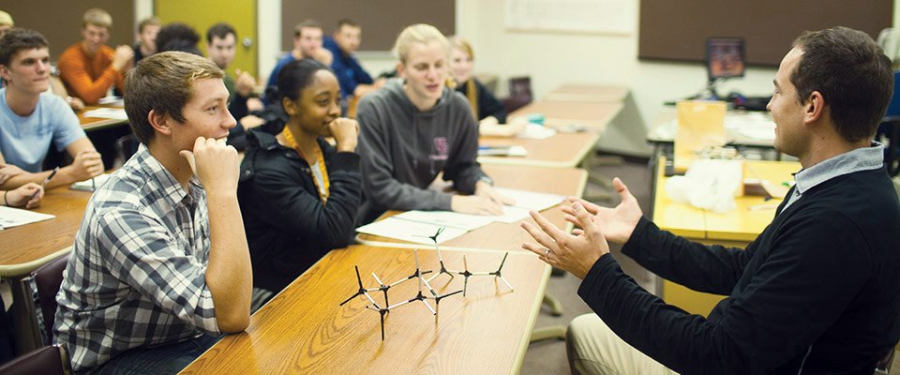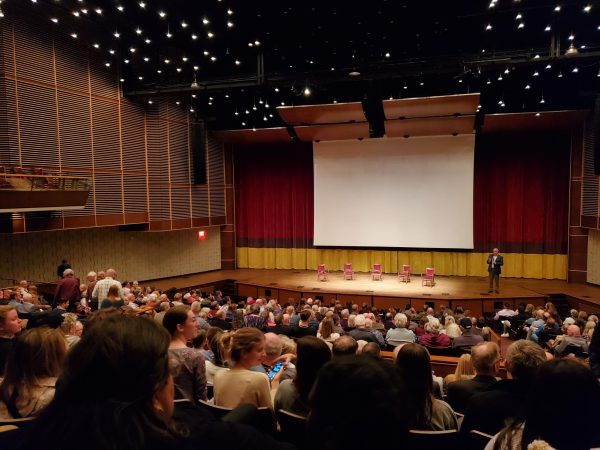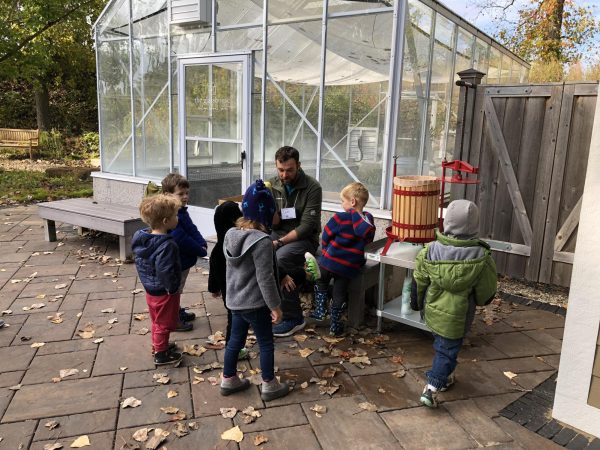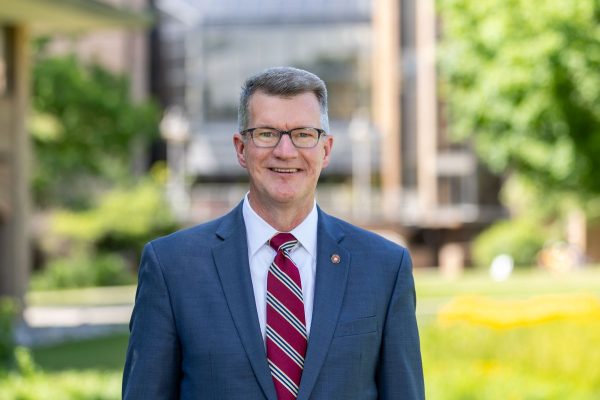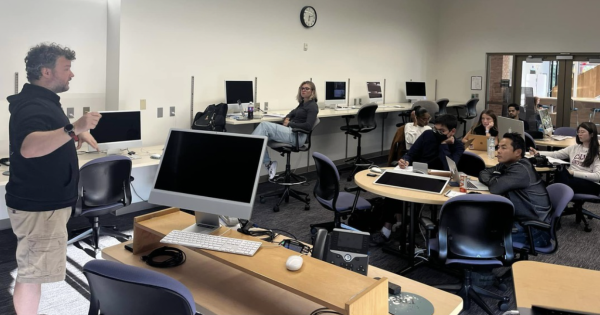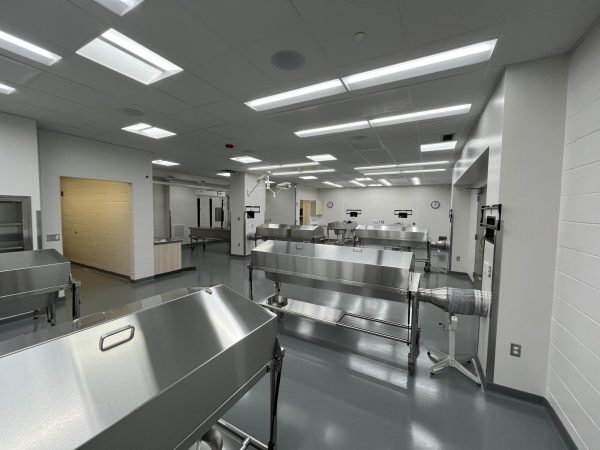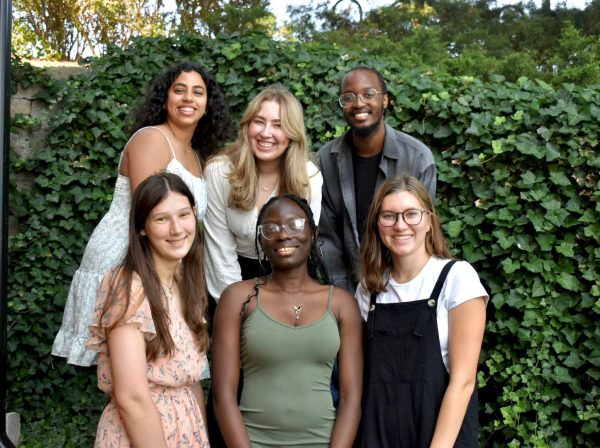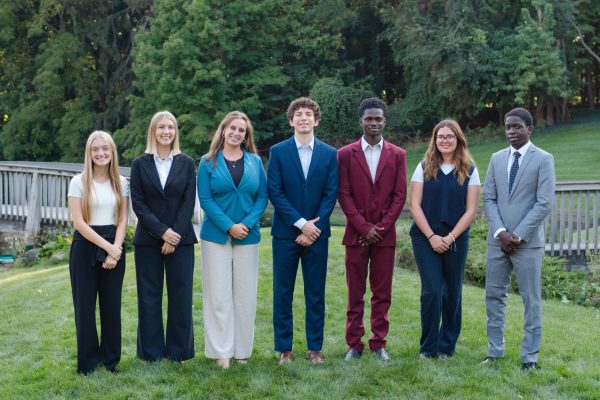Private and public education cross paths at Calvin
For many students, diversity of opinions and worldviews was a foundational part of their education. Photo courtesy calvin.edu
When Chloe and Christy Martin first walked into their elemen- tary school near Lancaster, Pennsylvania, they wore knee-length skirts and head coverings, refrained from painting their nails and never put on jewelry. “I didn’t know any Dutch people before coming to Calvin. We’re Anabaptists and everyone where I came from was German,” Christy Martin said. “And I still don’t paint my nails.”
Yet Chloe and Christy didn’t complete all of the education in the Menonnite tradition. By the time they got their high school diplomas, they had sung through years of children’s choir at their Anabaptist elementary school, sat through months of chapel at a non-denominational Christian middle school, and glide-stepped through four seasons of marching at a rural public high school.
Before hauling their belongings into residence halls and running between classes in DeVries Hall and the DeVos Communication Center, Calvin students complete at least 13 years of education. These pre-Calvin school years, however, vary widely in how they mold the spiritual awareness of Calvin’s study body.
Why Christian ed?
According to Education Professor Robert Keeley, the larger pur- pose of a Reformed Christian education is to educate children in such a way that acknowledges God’s work in all areas of life.
Nathan Van Dyke, a first-year engineering major who attended Grand Rapids Christian Schools for his entire K-12 education, ap- preciated the Christian emphasis he received from his teachers. “They did a good job teaching everything through a Christian perspective,” Van Dyke said. He remembered, for example, a discussion about evolutionary theory in his junior year biology class.
“Instead of just saying we evolved, we talked about how God shaped us through the ages, instead of just seven 24-hour days,” Van Dyke said. He appreciated that point of view, a perspective that followed a Biblical hermeneutic going beyond a “super liberal” interpretation.
Keeley noted that his own appreciation of Christian education has grown. His parents attended K-12 Christian schools; he attended Holland Christian Schools and Calvin, before going to a secular graduate school, and he has taught in both Christian schools and public schools.
“I am grateful to have gone to Christian school. It has served me well,” Keeley said. “I’m grateful that, when I come to work in the morning, I can go all in, be my whole self. I don’t need to hide my faith. I can be explicit about it.”
Demographics
Despite Reformed education’s desire to educate a whole-hearted population, Christian day schools tend to enroll a very different population than public schools in West Michigan. According to the Michigan school report card, a large majority of elementary, middle and high schools in the 14,000-student Grand Rapids Public Schools have at least 80% of their students meet economic disadvantage criteria. In GRPS, 22% of students are white.
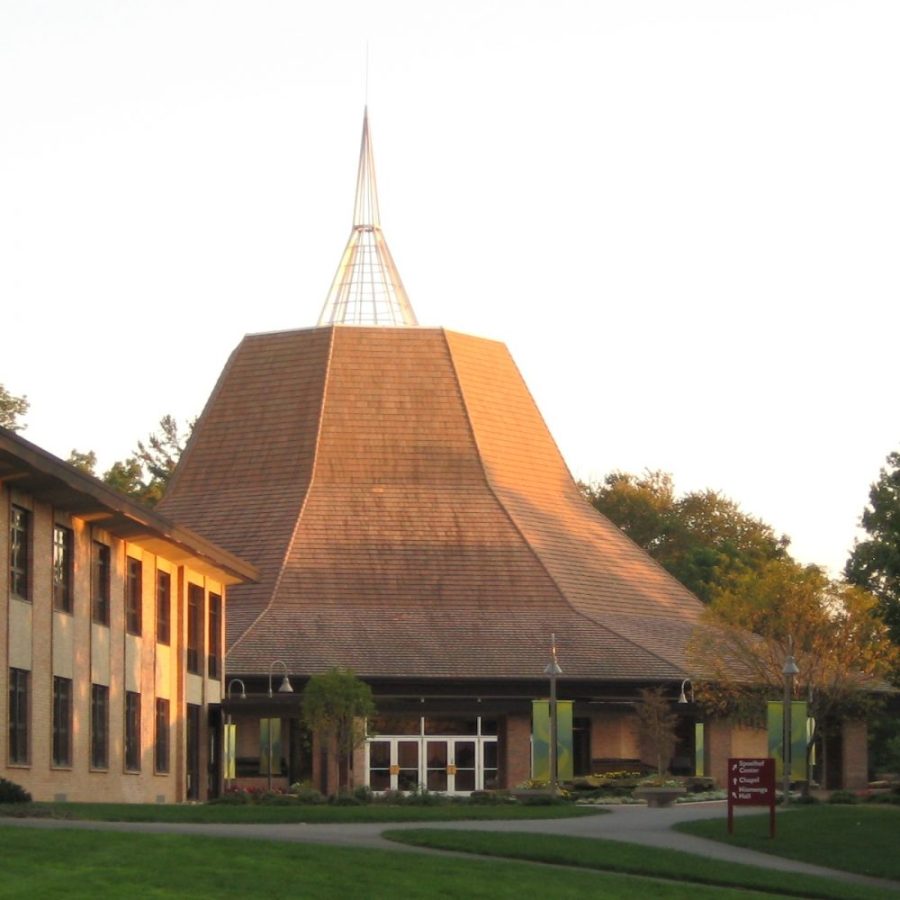
In contrast, 74% of students in the Grand Rapids Christian Schools are white. Standard tuition at Grand Rapids Christian High School is $10,990, according to their website. Standard kindergarten tuition is $7,990. If a student attends GRCS for K-12 with the lowest possible 2021-2022 tuition rates, the education costs more than $83,000. Higher tuition rates can make an entire K-12 education cost over $100,000 per kid, which often isn’t affordable.
“I think there was a sincere desire for Christian ed on the part of the people who founded these schools,” Keeley said. The unfortunate effect was that it created dual school systems, one much more affluent and white than the other, according to Keeley. Many schools have increased recruiting efforts and worked to offer more aid to students, although “there is still an imbalance.”
Lauren Henderson, a senior studying physics and philoso- phy, graduated from a large, economically disadvantaged public school district in Illinois. Her dad is a professor at a Christian university, but her family couldn’t afford Christian school tu- ition. Henderson’s high school was much more ethnically and socioeconomically diverse than Calvin and she embraced the opportunity to learn with and from people who were different from her. “I learned to navigate spaces in which I am not the majority,” she said.
Academic culture
Academic excellence is a central feature of Reformed Christian education, and as such many Reformed schools place an emphasis on preparing students for college. Yet both Christian schools and public schools vary widely in their academic offerings.
Freshman business major Emily Feikema, who attended Illiana Christian High School, started meeting with a col- lege admissions counselor in her first year. Throughout high school, teachers paid close attention to students’ academic progress.“They literally wouldn’t let you fail,” Feikema said.
Strong academic preparation isn’t exclusive to schools that collect tuition. Senior German, classics and history major Adrienne Ora attended a public high school in Midland, Michigan. Many of her classmates had parents who held advanced degrees, and as a result the school catered to a college-bound population. Ora appreciated the academic op- portunities afforded through the school’s strong AP, IB and elective curriculum, although she often found the environment to be suffocatingly competitive. For example, she really enjoyed band, but the most successful band students were also academic high-achievers who had access to private lessons.
Academic excellence isn’t always a given at Christian schools. Junior speech pathology major Brianna Nance attended a small Christian institution, The Charles Finney School, near Rochester, New York. The academics at her school were “pretty terrible.” Teachers weren’t required to be certified in their field or even have a bachelor’s. One year, her school didn’t find a history teacher, and as a result, the class was essentially a study hall. Her calculus teacher didn’t have a degree and directed students to Khan Academy videos.
“Things would happen there that totally shouldn’t have happened,” Nance said. “It was so frustrating. I always felt so behind when I would be around my high-performing public school friends…there was a real lack of opportunity.”
Faith formation
Students who attended Christian schools have mixed experiences of faith formation. Some people thrived in an environment where teachers proclaimed God’s presence across the disciplines, while others balked when their school’s principles didn’t match the way that teachers and classmates actually lived.
Van Dyke found his GRCHS experience essential for his spiritual development. From bible classes to chapel to small groups, the school offered multiple opportunities for him to develop his faith alongside his classmates and friends.
Feikema struggled at times to reconcile her school’s faith commitments with the bullying she experienced in high school. At one point during sophomore year, after she lost her friend group and broke up with her boyfriend, who also happened to be the son of the school’s principal, school became unbearingly claustrophobic.
“It was hard, because there is the word ‘Christian’ in the [school’s] name,” Feikema said, “but it seemed really shallow because everyone was so superficial and mean.”
Feikema also found that her Reformed Christian education didn’t provide much exposure to other faiths and different Christian traditions. During a Calvin class on reformation history, she had a discussion with her classmates about when they were baptized. It was one of the first times she had talked with someone who hadn’t been sprinkled as an infant.
Nance found Christian school more of a challenge to her faith than a support. It eventually led her to seriously doubt faith.
She remembered days in which classes would be canceled so that alumni or teachers could prophesy. The same teachers and administrators who prophesied over students would also make sexually suggestive comments and refuse to listen to concerns that female students had. The couple that headed the school’s missions department, who founded an orphanage of Africa, were later found to have abused their own children.
“It was difficult to figure out what faith was, when the adults and students were Christian in name only,” Nance said.
The school also leaned towards a socially conservative faith expression that Nance found irreconcilable with her own beliefs about social justice. Following the school shooting in Parkland, Florida, Nance tried to organize a vigil at her school to protest gun violence. Her administra- tion refused to allow the vigil to take place.
“First, [the principal] wouldn’t even listen to me, un- less I brought a guy with me who would say everything,” Nance said. “And he would say that God would protect us, so it doesn’t matter.”
By the time graduation rolled around, Nance was fed up with the emotion-driven, surface-level faith that she had grown up in. “I came out of that thinking that was horrible, and that I would never send my kids to Christian school,” Nance said. “I thought they abused Christianity.”
Christian ed at Calvin
Nance acknowledged that her Christian school experi- ence was out of the ordinary. But she found similarities between her school experience and other Christian high school graduates at Calvin.
“Even talking to other kids who went to Christian school, there seems to be a lack of authenticity, especially in the high school years,” Nance said. She has found Calvin refreshing, a space in which one mold doesn’t fit everyone, and in which multiple opinions about faith can coexist.
Henderson has appreciated her experience of Christian ed at Calvin. For her, it’s been essential to integrate her study of physics with her faith. “I’ve learned that science is an act of worship,” Henderson said.
Despite the education that she has received at Calvin, she understands that Christian education is often simply unavailable for people. In her view, spiritual develop- ment outside of school is a necessity for Christianity to be equitable.
“It shows how important it is to have good resources for kids at church,” Henderson said.



